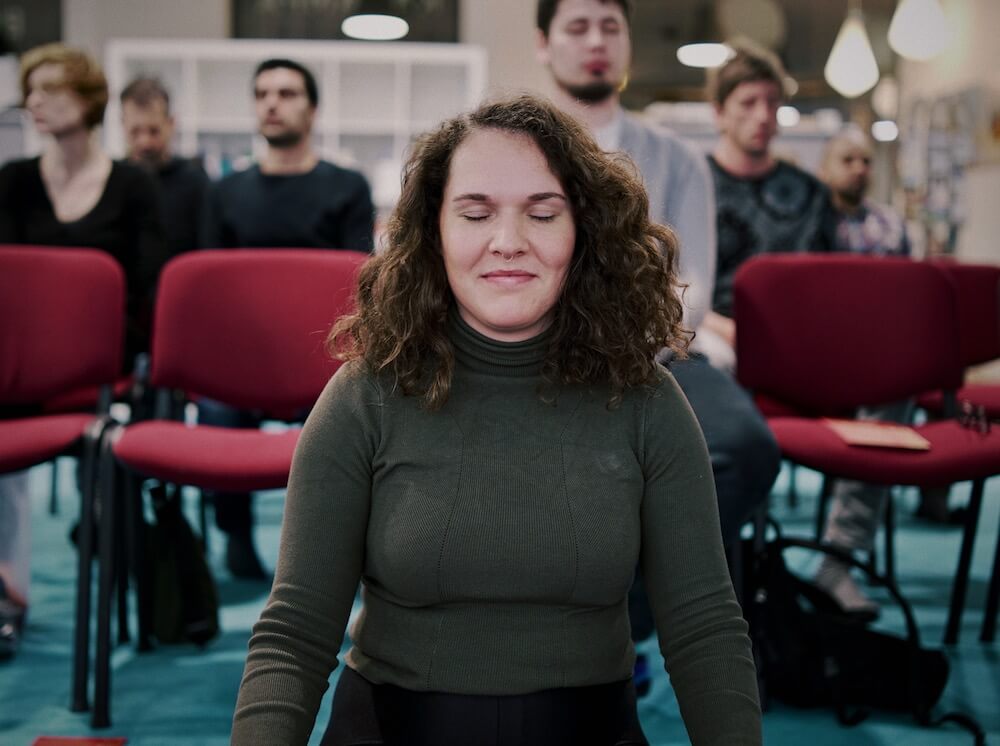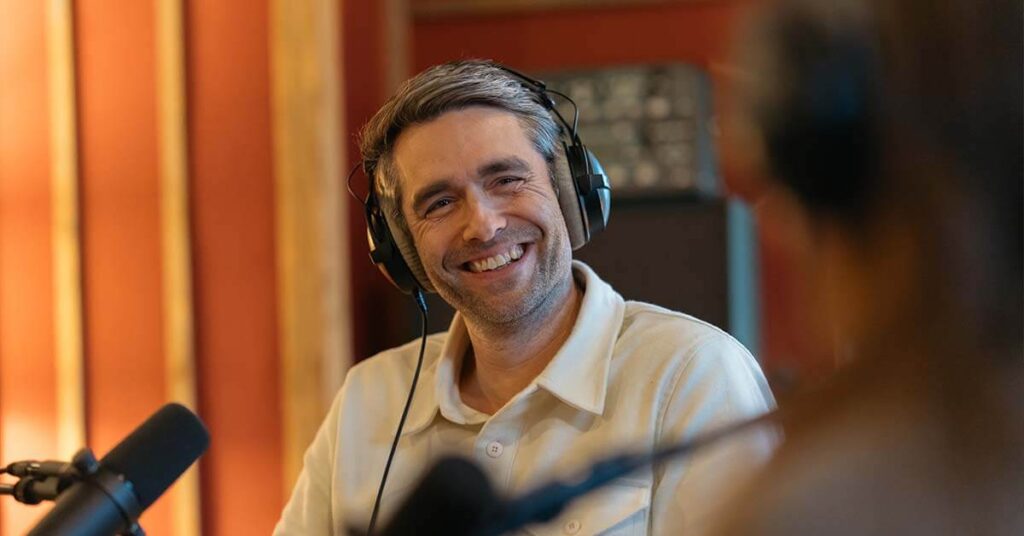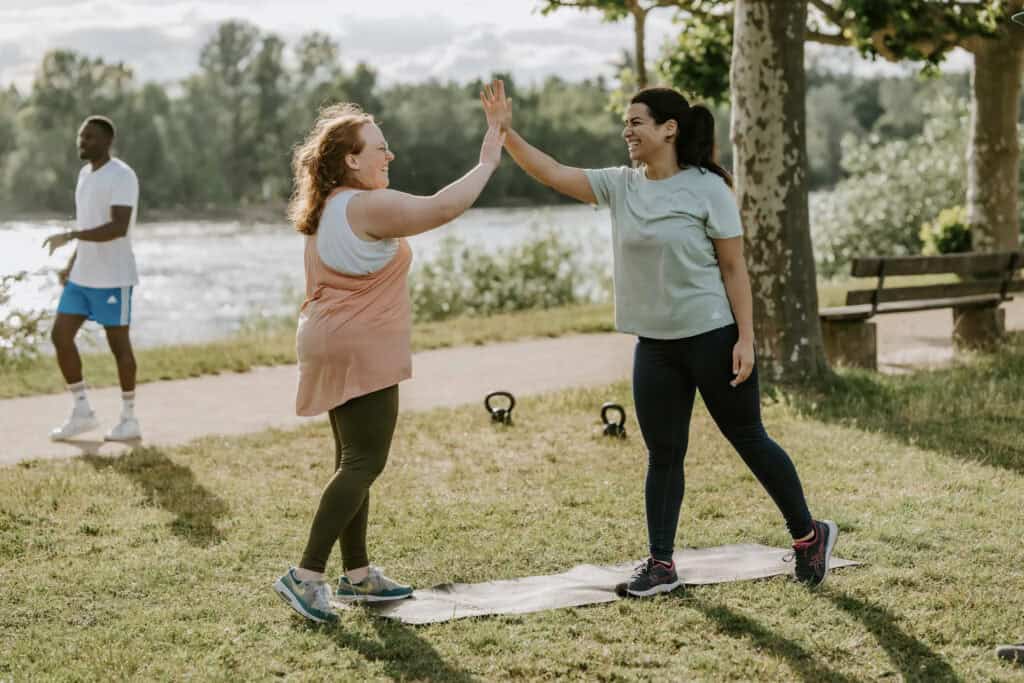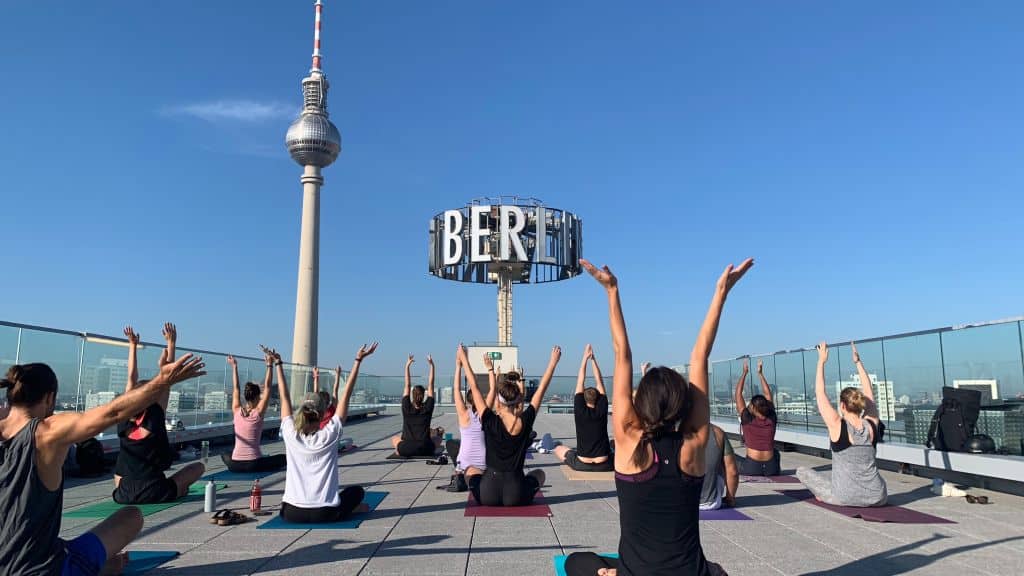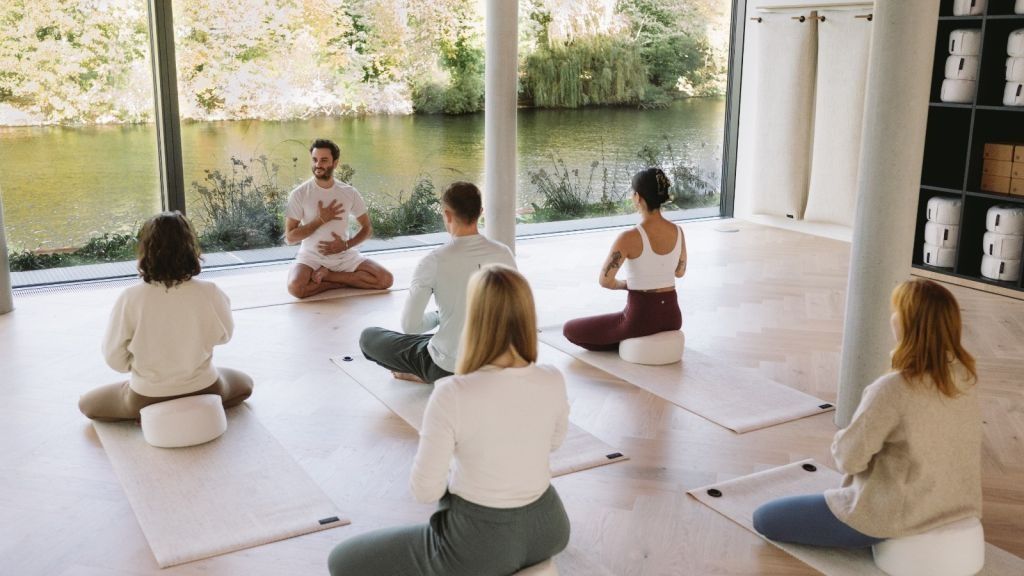Monk Gen Ananda sits cross-legged, bathed in gold and red robes. Behind him is a glass cabinet filled with golden replicas of Buddhist Gods. His presence is instantly soothing and his tone blissfully calm as he explains “We aren’t exhausted because we’re busy. We’re exhausted because our minds never stop working.”
I’m sitting in Kadampa Meditationszentrum Berlin about to begin my first meditation session. Or, to be accurate, it has already begun. Each session starts with Buddhist monk Gen Ananda explaining why meditation is vital for our wellbeing and a step-by-step explanation of one essential Buddhist meditation practice.
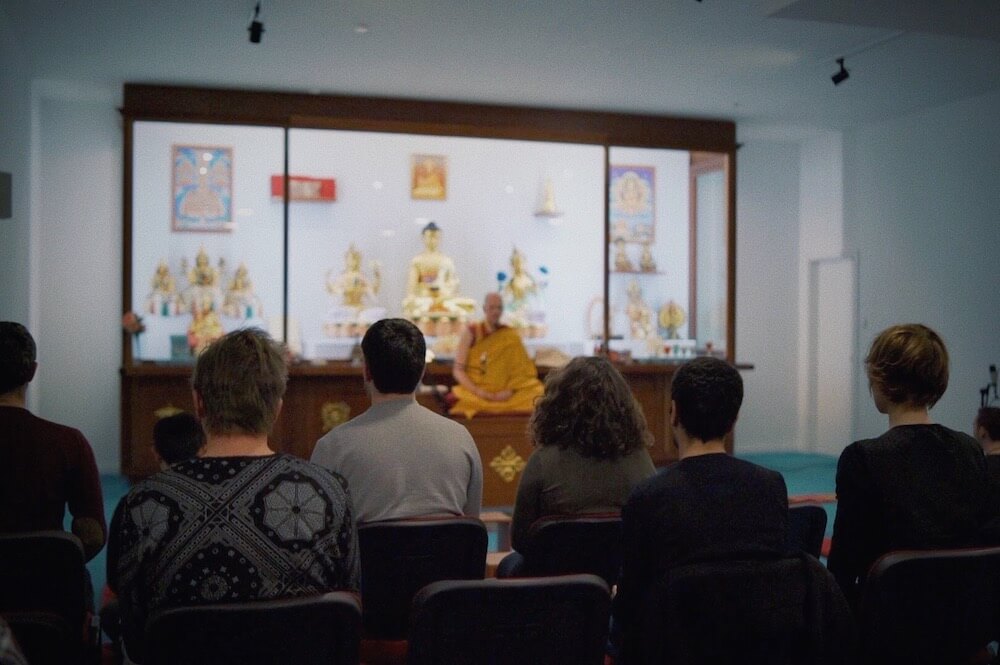
I’m apprehensive this evening for several reasons. I’ve never actually tried to meditate before. Will I be able to sit still for an hour? Will I find it really boring? Will I fall asleep? How will I stop my mind from running at a million miles per hour?
“It takes time to teach our minds how to relax,” Gen Ananda soothingly explains, “but one tool that allows us to truly focus on the moment is our breathing.” This is encouraging; I definitely know how to breath. I just need to get the hang of the concentration part…
Kadampa Meditationszentrum has several campuses in Berlin. This Mitte campus has the same hushed feeling of calm and peace as a church or cathedral. About twenty people sit on chairs or perch on low cushions on the thick blue-carpeted floor. All of us face the peaceful display ahead, listening intently to Ananda’s insight.
Meditation and Buddhism are often intertwined. Buddhism is based on teachings that develop inner peace, kindness and wisdom through daily practice – and meditation is a large part of this. Buddha Shakyamina founded Buddhism two and a half thousand years ago in India. Much of what Buddha taught was based on how problems and suffering arise from confused and negative states of mind and how all our happiness and good fortune arise from peaceful and positive states of mind.
Thus meditation is at the heart of the Buddhist way of life. Meditation is a method that makes space for us to understand the workings of our own minds. It’s about identifying the negative mental states and learning how to overcome them, as well as practising peaceful and positive mental states.
“Now we will begin our first meditation,” Ananda says. “Concentrate on your breathing and whenever your mind drifts away, bring it back to this focus.”
I sit with my back upright and active in my chair to prevent me falling asleep. I close my eyes and concentrate on my breathing. My mind is completely still.
Or is it? If I’m thinking about how still my mind is then is it truly still? Stop thinking. I concentrate on my breathing. What shall I have for dinner…? This is really, really hard. “Our minds are working and working all the time.” Ananda tells us. “Meditation gives them rest. But don’t worry if you find it hard to keep your mind still. This takes time.”
As I continue to drag my thoughts back to my breathing I notice a slight shift. My mind begins to slow down and those racing thoughts about dinner stop. I can feel my mind and body simultaneously relax, but without any of the feelings of boredom that I’d predicted. In fact meditation is completely different to what I thought it would be.
After about ten minutes Ananda slowly guides us back to reality. Each class is interspersed with a different Buddhist teaching. Today Ananda teaches us the difference between temporary and permanent releases of suffering. He speaks colloquially and adds jokes and anecdotes which makes his teachings totally relatable.
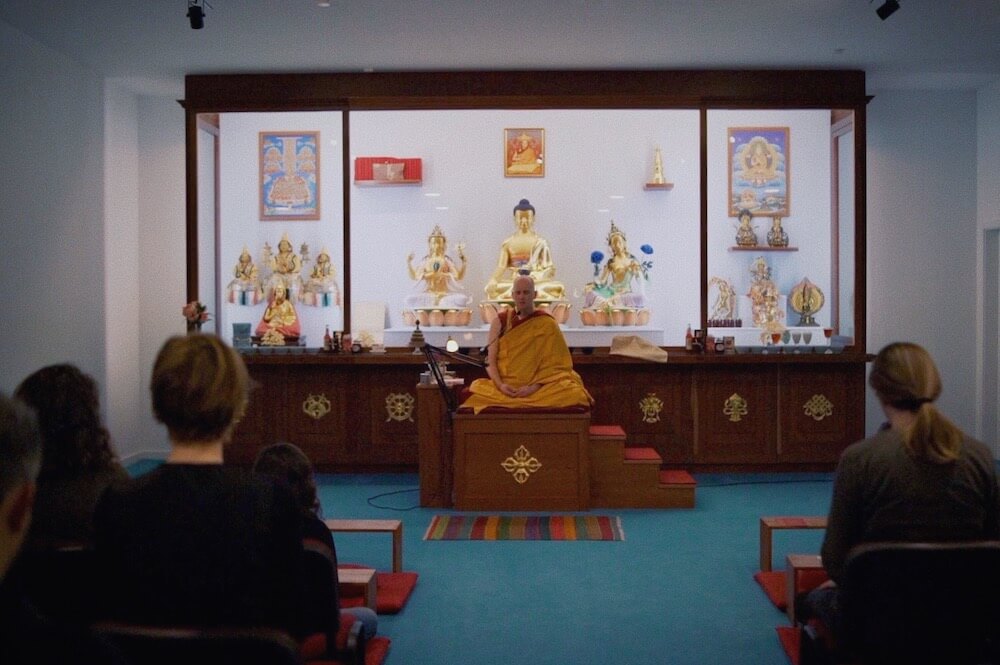
He says “Those who are physically healthy are experiencing a temporary cessation of sickness. However – this is only temporary. Later they will have to experience the suffering of sickness again and again; in this life and in countless future lives.”
I’m a little confused by this. Perhaps Ananda notices as he continues with another example. “You’ve had a busy day; but what’s next? You feel bored so you turn on Netflix. And then temporarily you enjoy freedom from the suffering of boredom. Great. But all Netflix series must come to an end. Then again your problem pops up. You feel bored again. You solved your problem temporarily but not permanently. This old ancient teaching of Buddha is that it’s great if we’re happily entertained, if we’ve had enough to eat, if we’ve got great friends. But it doesn’t solve any problem – because sooner or later it comes back fully fledged.”
I begin to grasp the concept and find it extremely powerful. In this day and age surrounded by pressure from social media we constantly seek contentment, telling ourselves “I’ll be happy when…” But this teaching shows us that those new shoes or that fancy meal only makes us happy temporarily. Soon we will want more. Buddhism teaches a state of mind where we are content regardless of outside influence.
Gen Ananda is a full-time Buddhist monk. He discovered meditation when he was a teenager during the ‘90s boom of Zen Dojo. He found it so inspiring he continued to practice while he studied at university in Germany which is where he discovered Buddhist methods.
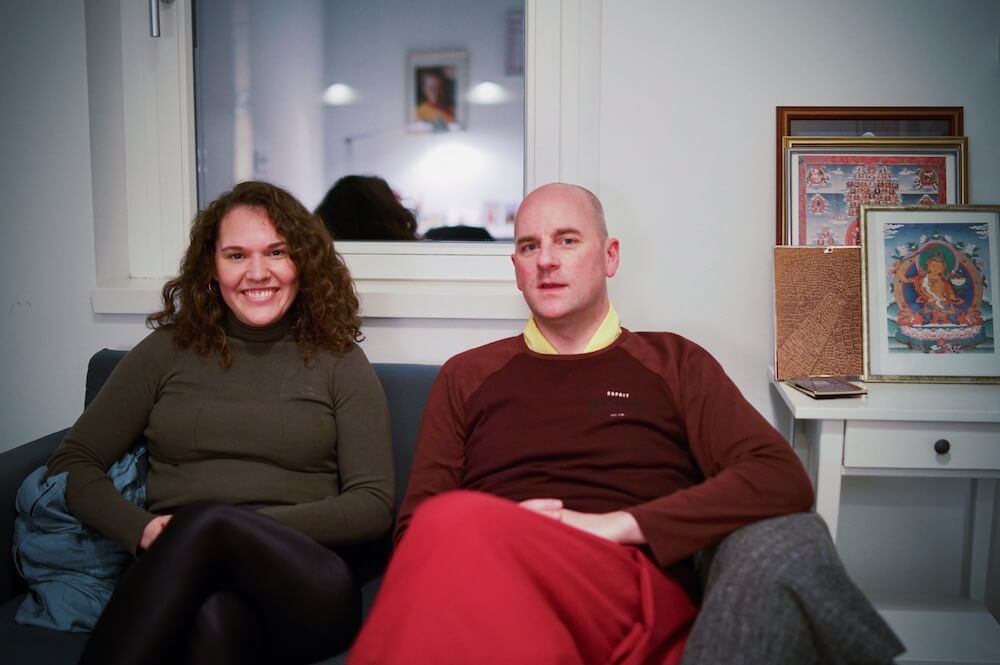
“It changes your perspective,” Ananda explains. “Buddhism offers you healthy ways to deal with difficult situations that isn’t just escaping and fighting. It means there’s less drama. And from that point of view it’s incredibly helpful. It makes you more resilient and helps you through everyday life.”
As Ananda guides us into our second meditation of the evening he explains “Buddha said that our issues are like waves. One wave comes and we solve it, we break it down, but then the next wave comes. You can resolve one issue but it’s just a matter of time before a new one arises. It’s like the movie Groundhog Day.”
He explains that sickness, ageing or death aren’t the problem – our experience of suffering is. “When your mind is tense and agitated then it’s easy to trigger feelings of being hurt. Whereas if you’re deeply relaxed and serene then you’re much less vulnerable. If you can find deep, profound, lasting peace of mind then you will be protected from all of these problems.”
Ananda continues: “The bottom line of all of this is that we shouldn’t be satisfied by temporary relief of suffering – but we should apply great effort to attaining freedom from suffering permanently.”
With this eye-opening lesson to digest we enter our second meditation of the evening. This time I feel much more relaxed and am able to concentrate longer on my breathing without being interrupted by pesky thoughts about dinner. And I make it to around 12 minutes before I accidentally fall asleep. Not bad for a first attempt, right?
If you’d like to try meditation, Urban Sports Club has tons of partners across Italy, France, Germany and Portugal.
And head to their website to find out more about Kadampa Meditationszentrum.
